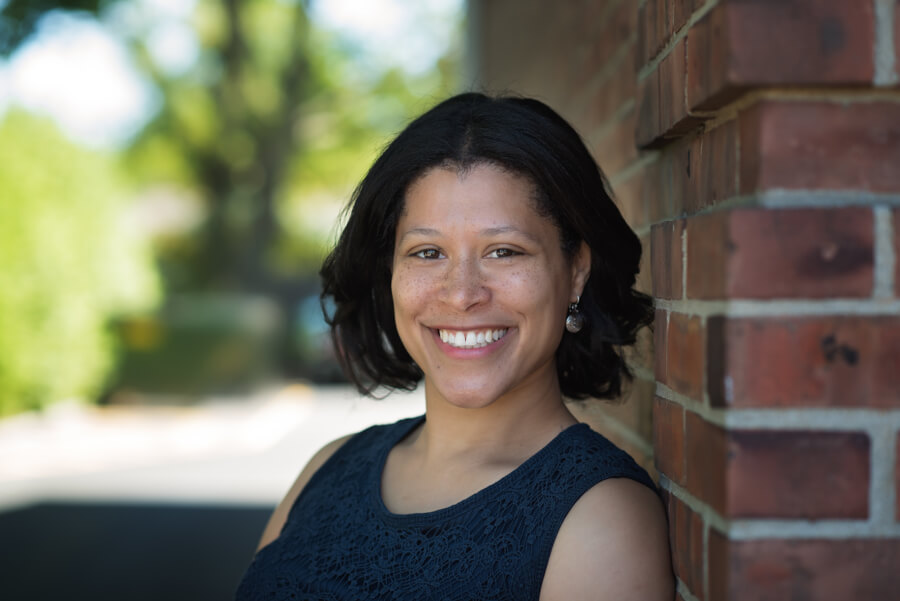Childhood anxiety is an experience that often confuses parents and caregivers. As a child anxiety therapist, I see many different forms of anxiety.

Some children show classic signs such as restlessness or tearfulness. Others display symptoms of anxiety that are harder to identify. Part of the difficulty is that these could be signs of a variety of other challenges unrelated to anxiety. Thus, when they are a sign of anxiety, they are often missed until they become bigger in intensity, duration, or frequency.
Psychosomatic Symptoms
To start, physical manifestations of anxiety (i.e. unexplained headaches, stomachaches, or muscle tension) are common but often overlooked. Indeed, anxiety is often a physical experience. As an adult, you may experience your stomach clenching before a difficult conversation. Children often don’t understand the connection between these physical feelings and worry. They also may not have the language to express their worries. Together this can look like random or made-up aches and pains. Recognizing the link between emotional distress and physical complaints is crucial for providing appropriate support.
Perfectionism
Initially, perfectionism may look like your child trying really hard to do something right. Perhaps, their homework or their sport. However, perfectionism frequently turns into avoiding and never completing tasks. Or spending so much time on one task while neglecting other responsibilities. This is because perfection is impossible. Children with anxiety may fixate on achieving the impossible. Additionally, they fear the consequences of making even the slightest mistake. Ultimately, this obsession with perfection can lead to frustration, meltdowns, and increased self-criticism. Identifying these signs early on allows parents to intervene and promote a healthy approach to learning and growth.
Selective Mutism
Selective mutism is characterized by a child’s inability to speak in specific social settings or with particular individuals. It is another form of anxiety that can be misunderstood. Often mistaken for shyness, this condition requires a unique approach. With selective mutism, it is particularly important to create environments where the child feels safe. This helps them build confidence to express themselves verbally. Read more about Selective Mutism:
- 10 Things You Need to Know About Selective Mutism
- Helping Your Child with Selective Mutism
- Could Your Child Be Experiencing Selective Mutism?
- Learn More About Selective Mutism Therapy Services
Regression
Anxiety can trigger regression in behavior and development. In turn, children go back to developmental levels where they may have felt safe and taken care of. For example, they may return to younger forms of self-soothing. On the other hand, their anxiety may steal the energy it takes to cope in more mature ways. Previously acquired skills such as toilet training may be lost. Bedwetting, thumb-sucking, and clingy behavior may resurface as coping mechanisms and provide the child with a sense of security during stressful times.
Social Withdrawal

Hypochondria
Hypochondria is an excessive worry about physical health. It can develop in children as a means to cope with anxiety. Some examples are frequent complaints about illness, regular visits to the school nurse, and an intense focus on germs. In contrast, while hypochondria may be part of a general experience of anxiety, it may also suggest health anxiety.
Nightmares and Sleep Disturbances
For young children, disturbances in sleep is not an unusual event.
“One more glass of water.”
“Tuck me in again.”
“Can I sleep in your room?”
“I had a bad dream.”
And the list goes on and on. Anxiety at bedtime can creep up on parents. At first, it seems like acting out to avoid bedtime or get attention. But, a child’s anxiety at bedtime can disturb parents’ ability to get tasks done or relax in the evening. In addition, it can disrupt sleep for parents and children. As a result, by the time parents identify bedtime anxiety, they are sleep-deprived, struggling, and overwhelmed. Here are some suggestions for managing bedtime:
- Tired of Sleepless Nights? Parenting Advice Can Help
- Finding Solutions for Bedtime with an Anxious Child
Overachievement and Overcompliance
Overachievement in children can sometimes come from anxiety-driven perfectionism. Similarly, over-compliance – rigid adherence to rules to avoid perceived consequences – may indicate underlying anxiety. It’s crucial to find a balance between fostering a healthy work ethic and addressing the behavior’s root causes. Interestingly, as a child anxiety therapist, I sometimes find that successful therapy results in children acting out more because they are acting more like children.
Anger and Tantrums
Being overwhelmed by racing thoughts or anxious bodily sensations can increase irritability and crankiness. Perfectionism and lack of sleep can also fuel anger and frustration. Furthermore, children overwhelmed by anxiety often struggle to regulate their emotions. This dysregulation can lead to outbursts that do not match the situation. Irritability, frustration, and anger can boil over into tantrums and behavioral outbursts. Moreover, younger children who experience panic attacks may look frenzied and out of control. This is due to the fear they are experiencing in their body. Their desperation to get away from the feared situation may show as a massive meltdown.
In conclusion, as a parent, your child’s well-being is your top priority. If you’ve noticed signs of anxiety in your child, professional therapy can provide invaluable support. These therapists specialize in helping children navigate their emotions, build resilience, and develop healthy coping mechanisms.

Get Started With Child Therapy in New Jersey Today!
Child anxiety can be difficult to identify and manage. With help from a child therapist, parents can learn to identify and help manage their child’s anxiety in whatever form it takes. Our child therapists in Branchburg, NJ, and Scotch Plains, NJ understand the importance of parent involvement. To ensure that you have the parenting support you need and deserve, and to begin therapy for your child, follow these steps:
- Connect with Brave Minds Psychological Services today for a free 20-minute consultation.
- Get your questions answered by one of our experienced therapists.
- Begin feeling more hopeful as a parent.
Other Counseling Services at Brave Minds Psychological Services
At Brave Minds Psychological Services, we offer a variety of services from our licensed therapists in order to get you on the right path to healing. Our other services include child sexual abuse therapy and food allergy therapy. For teens, we provide anxiety treatment for teens, and teen social phobia therapy. We also specialize in adult anxiety counseling, postpartum counseling, birth trauma therapy, and sexual assault counseling for adults. Other offerings include online therapy, group therapy, couples counseling, and counseling for parents.
Futhermore, we also have a blog where we write about a wealth of different mental health subjects. If you’re interested in learning more about us here at Brave Minds Psychological Services, please reach out at our Scotch Plains and Branchburg counseling offices!



